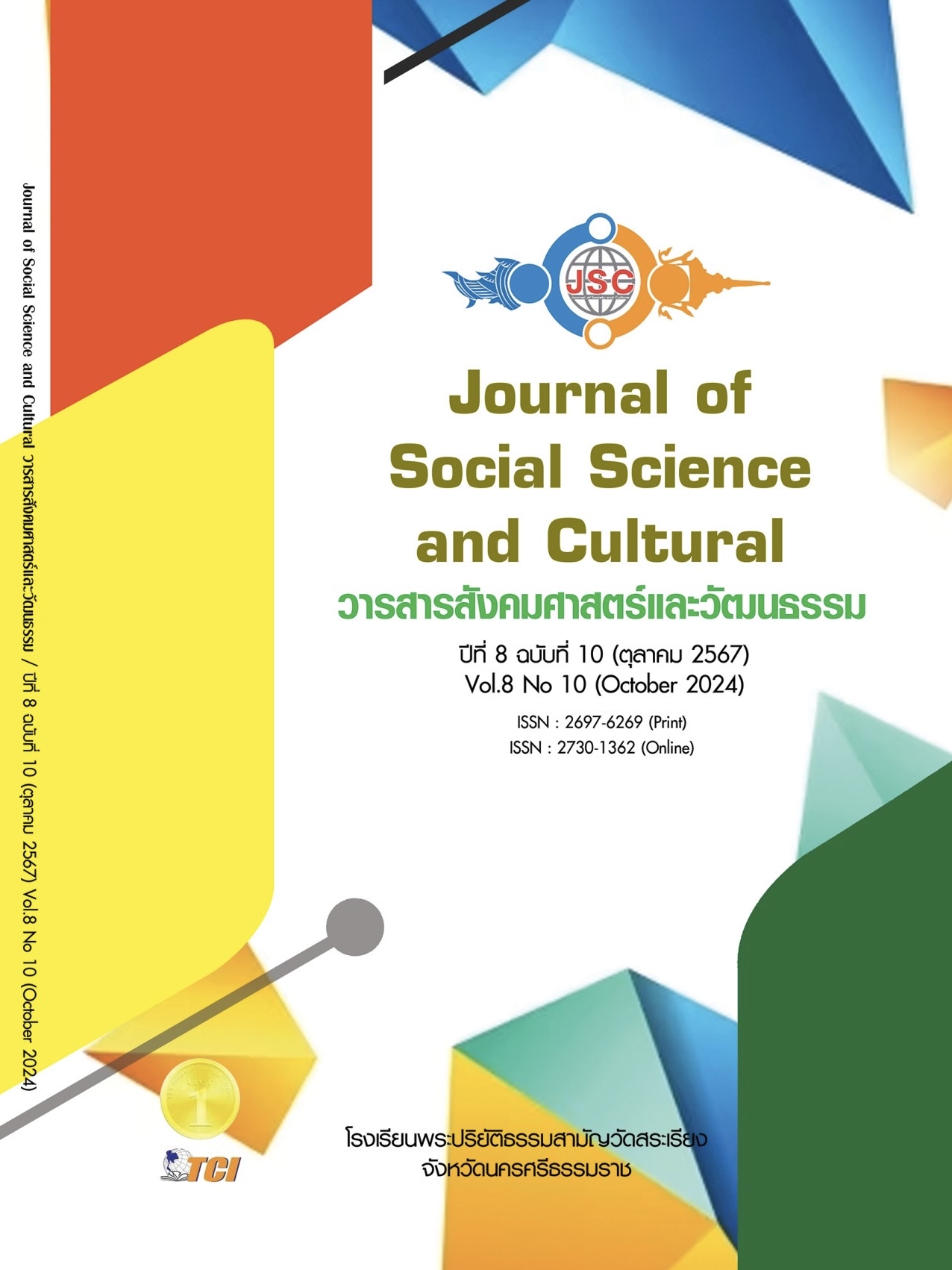DEVELOPMENT GUIDELINE FOR INTERNATIONAL AGRICULTURAL EXTENSION AND DEVELOPMENT PROGRAM THROUGH DISTANCE LEARNING
Main Article Content
Abstract
The objectives of research were to study: 1) study learning management of agricultural extension and development and related topics at the university broad; 2) the analysis of distance learning technology and innovation; and 3) the analysis of development guidelines for international program through distance learning. Mixed methods were used for this research. The sample were: 1) 5 programs in foreign universities; 2) 5 lecturers and scholars from both Thai and foreign universities; 3) 141 students and graduates; and 4) 18 experts participated in a focus group. Data were collected by using log form, in-dept interview form, questionnaires, and the topic of focus group. Data were then analyzed by using descriptive statistics, correlation analysis, factor analysis, and content analysis. The results of the study found that 1) learning management of agricultural extension and development at the university broad; all universities were public university and organized the education in 3 levels. Most of them were the in-classroom setting in 8 subject groups. The learning management should be flexible online classes and interaction at the university. The educational administration depended on context of each country, student recruitment, appropriate assistance services, and the stable internet. All of the respondents emphasized communication and media used in distance learning at the high to highest level. 2) Technology and innovation of learning classified according to factor analysis were 11 main components. 3) Guidelines for program development should encourage teamwork among all staff and 8 main component groups such as 3.1) student admission team; 3.2) communication and media team; 3.3) academic team; 3.4) academic and innovative management team; 3.5) student service team; 3.6) evaluation team; 3.7) coordination and international relations team, and 3.8) public relations team.
Article Details
References
ชลาภรณ์ สุวรรณสัมฤทธิ์ และสุรัชดา สุบรรณ ณ อยุธยา. (2563). รูปแบบการจัดการเรียนการสอนออนไลน์ระบบเปิดของอุดมศึกษาไทย. นนทบุรี: มหาวิทยาลัยสุโขทัยธรรมาธิราช.
นิคม ทาแดง และชนิดา พิทักษ์สฤษดิ์. (2534). เอกสารการสอนชุดวิชาการศึกษาทางไกล. นนทบุรี: สำนักพิมพ์มหาวิทยาลัยสุโขทัยธรรมาธิราช.
มหาวิทยาลัยสุโขทัยธรรมาธิราช. (2565). ข้อมูลเกี่ยวกับมหาวิทยาลัยสุโขทัยธรรมาธิราช. เรียกใช้เมื่อ 25 มิถุนายน 2567 จาก https://www.stou.ac.th/main/aboutstou.html
วิชัย วงษ์ใหญ่. (2554). การพัฒนาหลักสูตรระดับอุดมศึกษา. (พิมพ์ครั้งที่ 2). กรุงเทพมหานคร: บริษัท อาร์ แอนด์ ปริ้นท์ จํากัด.
สาขาวิชาเกษตรศาสตร์และสหกรณ์. (2565). หลักสูตรเกษตรศาสตร์มหาบัณฑิต ส่งเสริมและพัฒนาการเกษตร. นนทบุรี: สาขาวิชาเกษตรศาสตร์และสหกรณ์ มสธ.
สาขาวิชาส่งเสริมการเกษตรและสหกรณ์. (2533). หลักสูตรบัณฑิตศึกษา สาขาวิชาส่งเสริมการเกษตรและสหกรณ์ ปีการศึกษา 2553 - 2554. นนทบุรี: สาขาวิชาส่งเสริมการเกษตรและสหกรณ์ มสธ.
สิน พันธุ์พินิจ. (2544). การส่งเสริมการเกษตร. กรุงเทพมหานคร: บริษัท รวมสาส์น จำกัด.
สุมาลี สังข์ศรี. (2549). การศึกษาทางไกล. นนทบุรี: สำนักพิมพ์มหาวิทยาลัยสุโขทัยธรรมาธิราช.
Rogers, A. & Taylor, P. (1998). Participatory Curriculum Development in Agricultural Education: A Training Guide. Rome: FAO.
Tomlinson, C. (2005). Grading and Differentiation: Paradox or Good Practice. Theory into Practice, 44(3), 262-269.
Tyler, R. W. (1949). Basic Principles of Curriculum and Instruction. Chicago: The university of Chicago press.


